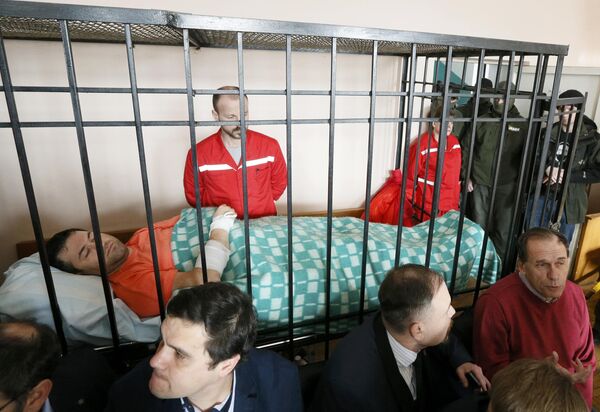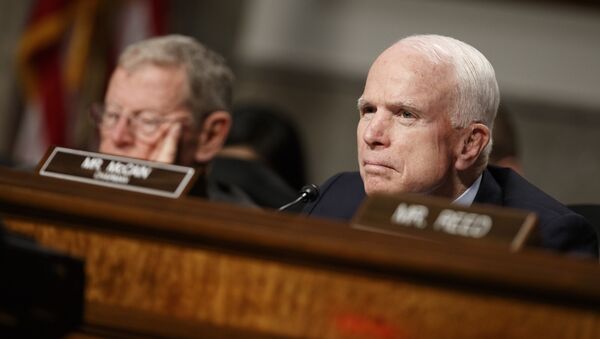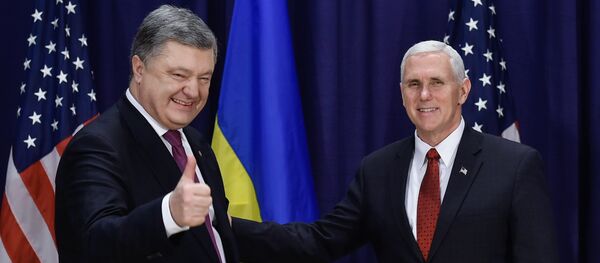Nasirov, a high-flying politician who owes his political allegiance to Ukrainian President Petro Poroshenko, was relieved of his duties last week, pending an investigation into embezzlement charges equivalent to a cool $75 million US. Nasirov was reported to have suffered a heart attack after being served his indictment. If the charges against him stick, the politician could face up to six years in prison.
On Friday, Arizona Senator John McCain, who has long been one of the main proponents of increased US assistance to Ukraine against Russia, released a glowing statement about Nasirov's arrest.
"The arrest of Roman Nasirov, Ukraine’s top tax official and director of the State Fiscal Service, pending embezzlement charges is a positive step forward for the Government of Ukraine in its fight against the corruption," the statement reads.
Last week, President Poroshenko revealed that he had not been informed by Ukraine's National Anticorruption Bureau about the charges against Nasirov, and said that it was a "striking example" of Ukraine's success in establishing "an effective anti-corruption infrastructure."

Ukrainian political observers, however, believe that Nasirov's arrest is simply part of an internal power struggle, possibly involving Finance Minister Oleksandr Danyliuk, who has himself been accused of corruption, and of hiding offshore assets in Cyprus and the Cayman Islands. According to political scientist Ruslan Bortnik, Nasirov's arrest is an attempt to push him out of his State Fiscal Service post.
Other analysts believe that Prime Minister Volodymyr Groysman, who is known to have poor relations with the president, has been the main beneficiary of Nasirov's arrest. The politician's detention has come at an opportune time, in light of rumors that the president has been looking for ways to reformat the parliamentary coalition and sack the prime minister.
Political observer Petr Ohotin, meanwhile, thinks that the case against Nasirov is a kind of signal from the president. "In this situation, Poroshenko's position is unenviable," Ohotin noted. Nasirov, he said, "is symbol of the guarantees the president provides to people involved with him in some schemes, to the people on whom the cartel consensus of oligarchic structures in Ukraine rests. In this case, giving up Nasirov factually shows that it's every man for himself – that the president doesn't answer for anyone, or support anyone. Most likely, Poroshenko will now be looking for options to escape from this predicament."
On the issue of Ukraine specifically, McCain has pressed President Trump to send lethal weapons to the country, and indicated repeatedly that he would like to see a toughening of US anti-Russian sanctions over the Ukraine crisis. Late last year, he also paid a visit to the front line in the Donbass, demonstratively offering his support for Kiev's war against the Donbass, and noting that the US would "stand firm" against what he curiously called "Putin's aggression."



